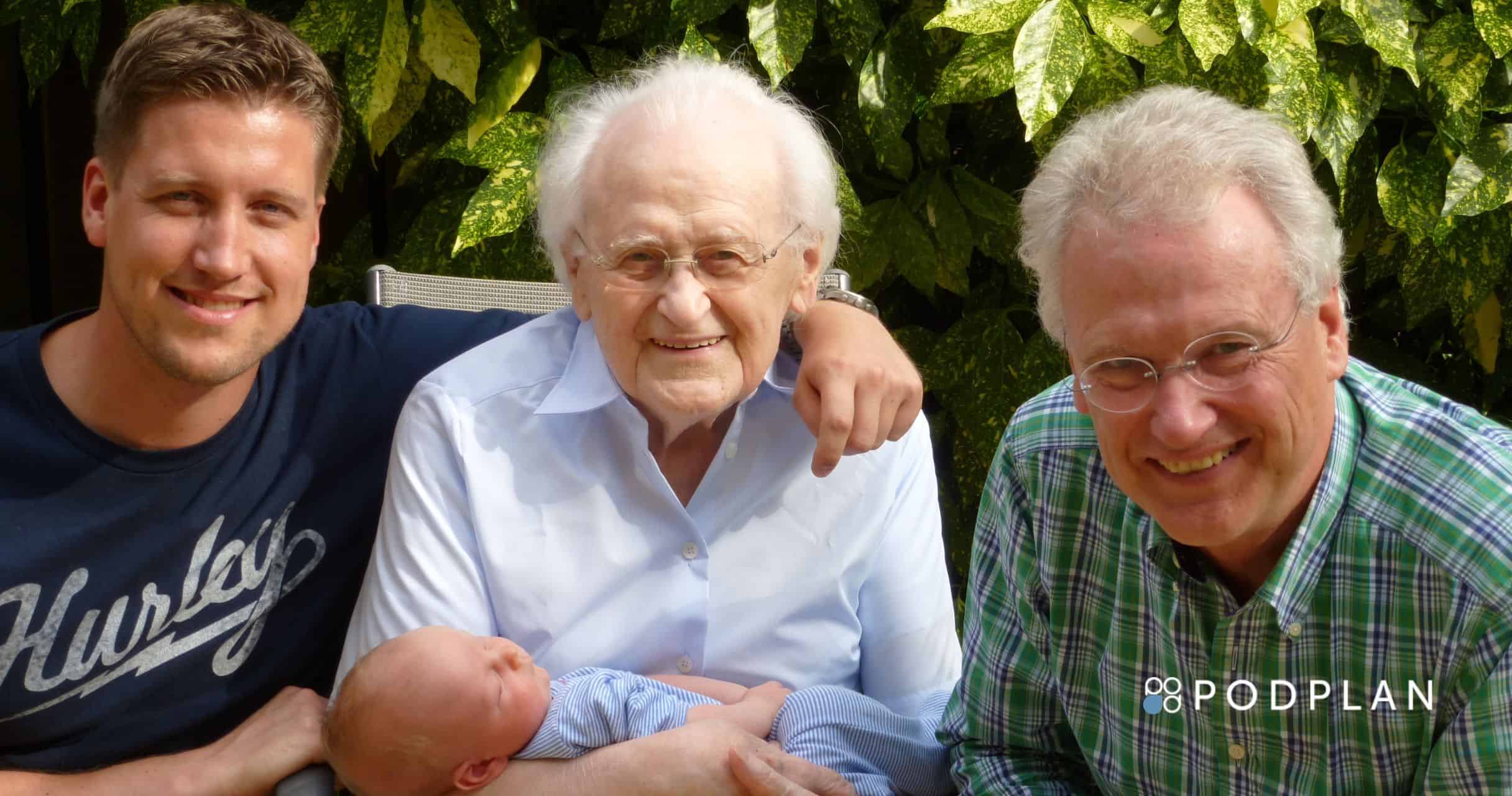
Wealth management has always been about numbers. Balances. Portfolios. Projections. It’s the cold, clinical math of money. But what if I told you the future of wealth management isn’t about numbers at all?
Instead, it’s about people.
The industry is standing at a crossroads. One path is the traditional, transaction-driven model - efficient, precise, and painfully impersonal. The other is something more transformative: becoming a family adviser. It’s a role that reaches beyond spreadsheets and charts to address life’s messier concerns. And as the UK’s population ages and the largest wealth transfer in history looms, those who embrace this shift will not just survive. They’ll thrive.
Why? Because the business of money is increasingly tied to the business of life.
The Birth of the Family Adviser
Let’s start with a story. In the 1950s, Jaguar was more than just a car brand in the UK - it was an icon of British engineering and style. But by the 1970s, it was struggling. The company had focused too much on the mechanics of the car and too little on what customers wanted: reliability, comfort, and a sense of pride in ownership.
Jaguar realised something profound: it wasn’t just selling cars. It was selling identity.
The wealth management industry is on the cusp of a similar realisation. For decades, it has been selling financial performance. Now, it must sell peace of mind, generational harmony, and the ability to navigate life’s uncertainties.
The role of the financial planner is evolving into something akin to a trusted family adviser - a guide not just for investments but for life’s broader challenges.

The Ageing Client: A Catalyst for Change
Here’s a statistic to consider: in the UK, the number of people aged 65 and over is projected to increase by over 5 million by 2040, making up nearly 25% of the population. This ageing demographic is creating a seismic shift in client needs.
Older clients face challenges that can’t be solved with market returns. They’re worried about health, long-term care, and estate planning. They’re asking questions about assisted living, government benefits, and what happens if their mental faculties decline.
And they’re turning to their wealth managers for answers.
But there’s a problem: most wealth managers aren’t equipped to answer them. They lack the tools, the training, and the holistic mindset required to address these deeply personal issues.
This isn’t just a missed opportunity. It’s a risk.
The Danger of the "One-Generation Plan"
Consider intergenerational wealth transfer. In the UK, it’s estimated that £5.5 trillion will pass from one generation to the next by 2055.
Yet here’s a brutal truth: most wealth managers lose the next generation of clients.
Why? Because their relationships are tied to the current generation. They’ve spent years building trust with Mum and Dad but haven’t established any connection with the kids. When the estate is settled, the heirs often go looking for their own advisers.
The shift to a family adviser model addresses this head-on. By engaging the entire family - by helping them navigate not just financial decisions but life’s complexities - wealth managers can build lasting, multi-generational relationships.
The Human Side of Risk Mitigation
Historically, risk mitigation in wealth management has meant diversification. Hedging against market downturns. Protecting capital.
But let’s consider a different kind of risk:
- What happens if a client doesn’t have a will? (In the UK, est. two-thirds of adults don’t.)
- What if they suffer a cognitive decline and don’t have a Lasting Power of Attorney in place?
- What if their children end up in bitter disputes over the estate?
These aren’t hypothetical scenarios. They’re realities that play out every day, and they can destroy families.
Wealth managers who step into the role of family advisers can prevent these crises. By facilitating conversations about end-of-life planning, encouraging the creation of legal documents, and providing tools like digital vaults for important information, they demonstrate a commitment to their clients’ well-being that goes far beyond pounds and pence.
Lessons from History: The Value of Holistic Thinking
In the 1970s, the British Railways Board introduced the InterCity 125. It wasn’t just a train - it was a revolution in rail travel. The InterCity 125 didn’t focus solely on speed. It offered comfort, reliability, and a superior passenger experience.
Wealth management is having its InterCity moment. The firms that thrive won’t be the ones that focus solely on managing portfolios. They’ll be the ones that help clients navigate life’s complexities. The ones that embrace humanity in all its messy, beautiful forms.

What Does a Family Adviser Do?
This shift isn’t just philosophical. It’s practical. Here’s what it looks like in action:
1. Facilitating Tough Conversations
Many families avoid talking about money, ageing, and death. A skilled family adviser helps break the silence, creating a safe space for these essential discussions.
2. Providing Tools and Resources
From guides on care home funding to digital platforms like Podplan, family advisers offer solutions that simplify the overwhelming.
3. Building Multi-Generational Relationships
By engaging heirs early - inviting them to meetings, educating them about financial matters, and understanding their values - advisers secure their loyalty before wealth changes hands.
4. Mitigating Family Conflicts
Money is emotional. It can unite families, but it can also tear them apart. Family advisers act as neutral parties, helping to mediate disputes and set clear expectations.
The Competitive Edge
Here’s a striking statistic: research by Prudential found that 32% of UK retirees feel their wealth manager doesn’t fully understand their changing needs in later life.
Why? Because clients are hungry for more. They don’t want an adviser who just manages their money. They want someone who manages their concerns, their relationships, their peace of mind.
In a crowded market, the family adviser model isn’t just a nice-to-have. It’s a differentiator.

The Controversial Truth: This Isn’t Optional
Some wealth managers will resist this shift. They’ll argue that their job is to manage investments, not lives.
But the market doesn’t care about their opinions. It cares about client demands. And those demands are changing.
The future of wealth management isn’t just about managing wealth. It’s about managing life. Those who fail to adapt will find themselves left behind, much like British Rail’s slower competitors in the age of the InterCity 125.
The Time is Now
The evolution from financial planner to family adviser is not just a trend. It’s a transformation.
It’s about recognising that wealth is more than numbers on a page. It’s about legacy. Security. Connection.
The firms that understand this will lead the industry. They’ll be the Jaguars, the InterCitys, the ones that understand they’re not just selling a service. They’re selling a relationship.
Because in the end, money isn’t the goal. It’s the tool. The goal is a life well-lived, a family well-loved, and a legacy well-protected.
That’s the future of wealth management. And it starts today.
References:


